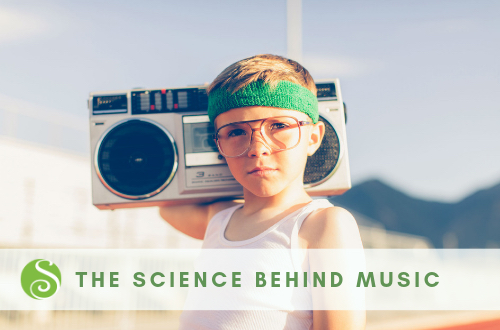 Again and again, research has shown that musical therapy is a powerful treatment option for people living with Alzheimer’s disease and dementia.
Again and again, research has shown that musical therapy is a powerful treatment option for people living with Alzheimer’s disease and dementia.
The authors of a 2018 Dementia & Neuropsychologia study referred to music as an “island of preservation” for those living with the disease, and a gentler option than pharmaceuticals for improving cognitive functions and increasing overall quality of life.
In a 2018 analysis of 24 studies published in four medical databases assessing the connection between music and memory and music and Alzheimer’s disease, it was shown that music can help reduce age-related declines in memory and cognition. The analysis quoted studies including:
- A 2014 report in The Gerontologist that showed singing and listening to music on a daily basis can improve overall cognition skills.
- A 1993 Perceptual and Motor Skills study in which people with Alzheimer’s who listened to and played music showed better fact recall compared to those who played with puzzles and those who participated in drawing activities.
The Gerontologist report suggested, when it came specifically to music and memory, people with Alzheimer’s who engaged in singing activities during a 10-week musical therapy program had better working memory immediately after the program ended than those who didn’t. Six months later, those who engaged in regular musical activity also had improved autobiographical memory.
Attempting to Make Sense of Music, Memory and Alzheimer’s
 Why are music and memory so entwined? And why is music so effective at helping people with Alzheimer’s experience better fact recall and autobiographical memory?
Why are music and memory so entwined? And why is music so effective at helping people with Alzheimer’s experience better fact recall and autobiographical memory?
A report published in an August 2015 issue of Brain: A Journal of Neurology attempted to explain the neuroscience behind this powerful connection.
Researchers theorized that musical memory, the process of encoding songs and other musical experiences, is at least partly independent from other forms of memory.
On one hand, they quoted studies that showed that musical memory can be severely damaged even when other memory systems are functioning normally.
But on the other end of the spectrum — and perhaps of most interest to those at the forefront of caring for people with Alzheimer’s disease — musical memory is surprisingly strong in those living with dementia, even when other parts of the brain have been damaged by the condition.
The Neuroscience Behind Musical Memory and Alzheimer’s
In the Brain report, researchers theorized that multiple neural networks were responsible for helping the brain encode music. And that different regions were activated when we tried to recall song lyrics versus trying to recall what was happening in our lives when the song was on the radio.
They found that musical memory involved the following regions of the brain:
- The motor cortices, which help us with planning and executing movement
- The anterior cingulate gyrus, which play a part in our motivation, decision-making skills and ability to resolve conflict
- The orbitofrontal cortex, which is involved in impulse control and how we experience emotions
What’s fascinating about this discovery is that these are the areas of the brain that are among the last to experience damage in those living with Alzheimer’s disease, according to the Brain study researchers.
While more research is needed to say for sure, this overlap may explain the connection between music and memory and the powerful effect music has on people with Alzheimer’s disease.
Studies like these are what drives Duets, Sonata Senior Living’s new music therapy program designed to promote cognitive rehabilitation and an increased quality of life in people with memory impairment.
